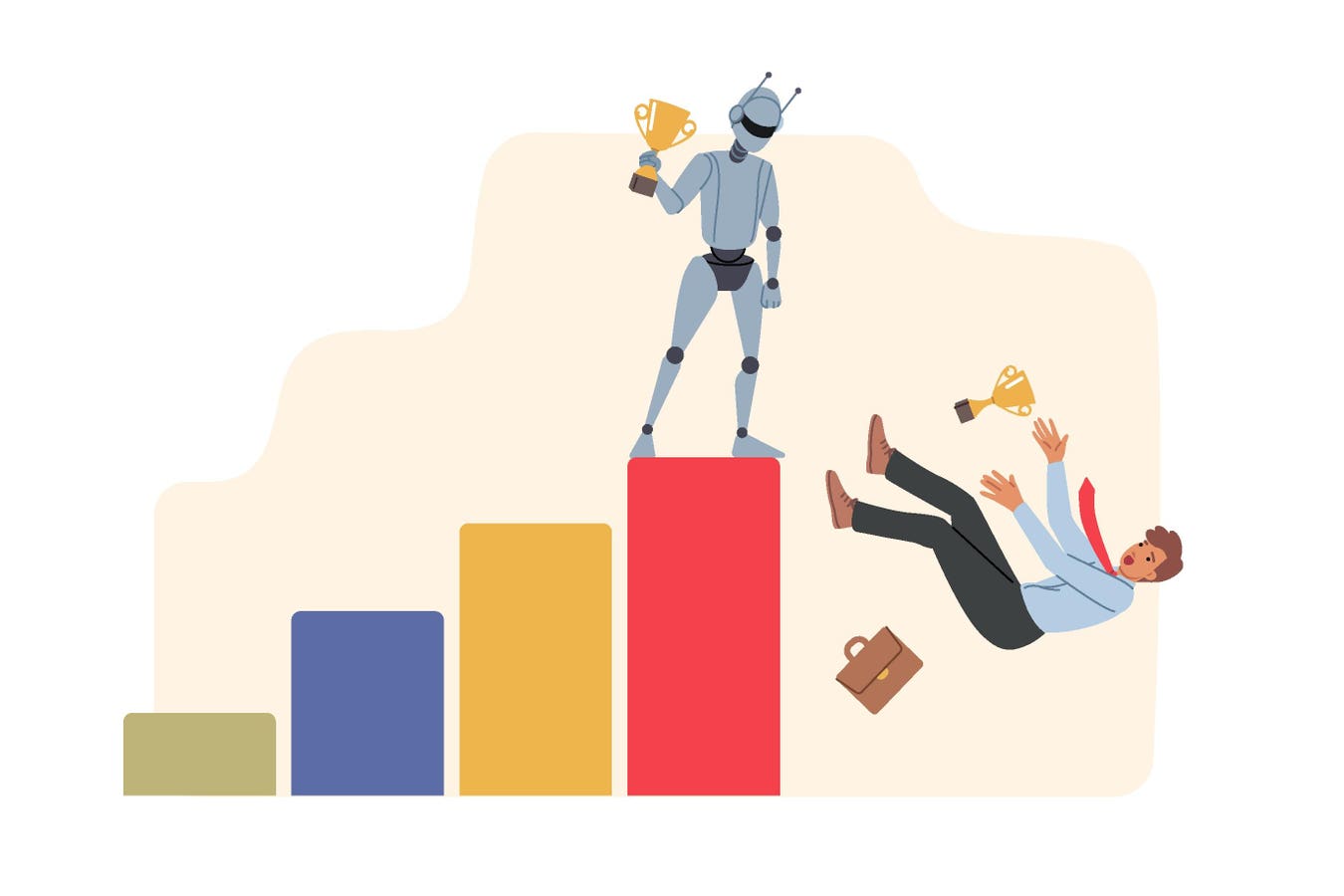Close up photo of the word colonialism in a dictionary book
getty
You’re scrolling through your social media feed – an AI algorithm decides what you see. You ask ChatGPT for advice on a personal problem – it responds with Western individualism. Your smartphone’s voice assistant struggles to understand your accent but works perfectly for others. These aren’t technical glitches – they’re symptoms of something deeper.
Cognitive colonialism sounds dramatic, but it captures an inconvenient reality: AI systems are increasingly shaping not just what we see and do, but how we think. And just like historical colonialism, this influence flows primarily in one direction – from powerful tech companies to the rest of us.
The New Extraction Economy
Early colonial powers extracted gold, spices and resources from distant lands while giving little back to local communities. Today’s AI operates on a similar model, but instead of mining minerals, it’s mining minds.
The world might end up ruled by large technology companies that impose their solutions throughout entire continents, leaving little space for homegrown creativity. This is happening under our watch and it’s a global pattern.
Tech companies scrape billions of social media posts, forum discussions and digital conversations from communities worldwide. They use this data to train AI systems that then sell services back to those same communities – but the AI reflects the biases and worldviews of its (Silicon Valley) creators, not the diverse communities that fed it information. This dynamic is now put on amphetamines as Google, OpenAI and Microsoft are rushing to offer generous “free” services for educators and students. Packaged as a social agenda it is a frighteningly smart business move – they are grooming the mindsets of future customers.
Our Brain On AI
Here’s where neuroscience makes this even more unsettling. Our brains are remarkably plastic – they literally rewire themselves based on what we repeatedly encounter. For millennia, human brains adapted to local environments, languages and cultural practices. Now, increasingly, our brains are adapting to digital environments designed by a handful of companies.
Think about how GPS has affected your spatial memory, or how autocomplete changes the way you write. These aren’t necessarily bad things, but they represent a fundamental shift: our cognitive abilities are becoming shaped by AI systems designed primarily by and for a narrow slice of humanity.
The consequence is cognitive dependency. Our generation is navigating a dangerous transition, from experimenting with AI, to relying on it; the next stage will be full-blown addiction. We are running the acute risk of agency decay. It is time now to dismantle AI colonialism, which requires radical rethinking of who designs, delivers and deploys AI; but also, who profits from it and who carries the costs. When we outsource thinking to AI systems that don’t understand our contexts, we risk losing the very cognitive skills that made us human.
The Monoculture Problem
Just as agricultural monocultures make ecosystems vulnerable to disease, cognitive monocultures make human societies vulnerable to manipulation and groupthink. When AI systems trained primarily on Western, English-speaking populations spread globally, they bring with them assumptions about how problems should be solved, what questions are worth asking, and what solutions are “optimal.”
Data gaps, western bias and extractive business models limit AI’s effectiveness and perpetuate historic harms. This is unfair and dangerous. Complex global challenges like climate change, social inequality and technological governance require diverse perspectives and ways of thinking. If AI systems flatten this diversity, we lose our inherent problem-solving capacities precisely when we need them most.
When AI Gets It Right
On the positive side – AI doesn’t have to be colonial. AI is neutral. The technology itself isn’t inherently oppressive – it’s how we choose to design, develop and deploy it that creates problems.
AI can serve humans and the society that they are part of with planetary dignity. When AI is deliberately tailored, trained, tested and targeted it becomes prosocial AI, an equalizing force. New technology does not automatically benefit everyone. Making AI beneficial requires intentional effort.
Consider examples where AI has been developed with communities rather than imposed upon them. Indigenous communities are working with researchers to create AI systems that help preserve endangered languages. Local organizations are training AI models on regional medical data to improve healthcare outcomes. These approaches start with community needs rather than corporate profit margins.
This is ProSocial AI in practice – systems designed to bring out the best in people and planet rather than extract value from them. Such systems are tailored to local contexts, trained on representative data, tested for cultural sensitivity and aimed at community-defined goals.
The Resistance Toolkit
So how do we protect ourselves from cognitive colonialism while still benefiting from AI’s potential? The answer lies in boosting our cognitive immune system – mental tools that help us maintain our intellectual autonomy. That means staying alert to how AI systems influence our thinking and making conscious choices about when and how to engage with them.
The A-Armored Defense System
Think of the A-Armor as your personal detector for AI interactions. Like a strong immune system, it can help to identify and respond to potentially harmful influences while allowing beneficial ones through.
Assumptions: Every time you use an AI system, ask: “What worldview is baked into this?” If you’re getting relationship advice from ChatGPT, remember it was trained primarily on Western, internet-based perspectives on relationships. That doesn’t make it wrong, but it might make it incomplete.
Alternatives: Actively seek out different approaches. Before accepting an AI’s first answer, ask yourself: “How might someone from a different background approach this problem?” Often, the most innovative solutions come from combining AI insights with human wisdom from diverse sources.
Authority: Who’s really in charge here? When an AI recommends a course of action, consider who designed it, who profits from following its advice, and whose voices were excluded from its training. This isn’t about being paranoid – it’s about being informed.
Accuracy: AI systems can be confidently wrong. They might give you perfectly formatted, authoritative-sounding answers based on biased or incomplete data. Cross-reference important AI-generated information with other sources, especially from communities most affected by the topic.
Agenda: Follow the money and power. Ask yourself: “Who benefits if I think or act this way?” Sometimes the agenda is obvious (ads), but often it’s subtle – like AI systems that nudge you toward consuming more content rather than creating your own.
Choosing Our Cognitive Future
The question isn’t whether AI will influence how we think – it already does. The question is whether we’ll shape that influence consciously or let it happen to us unconsciously.
We’re at hybrid crossroads. We can drift toward a future where a few powerful AI systems homogenize human thinking, or we can fight for cognitive diversity, intellectual sovereignty and AI systems that expand human wisdom.
The choice is still ours to make. But for how much longer?









